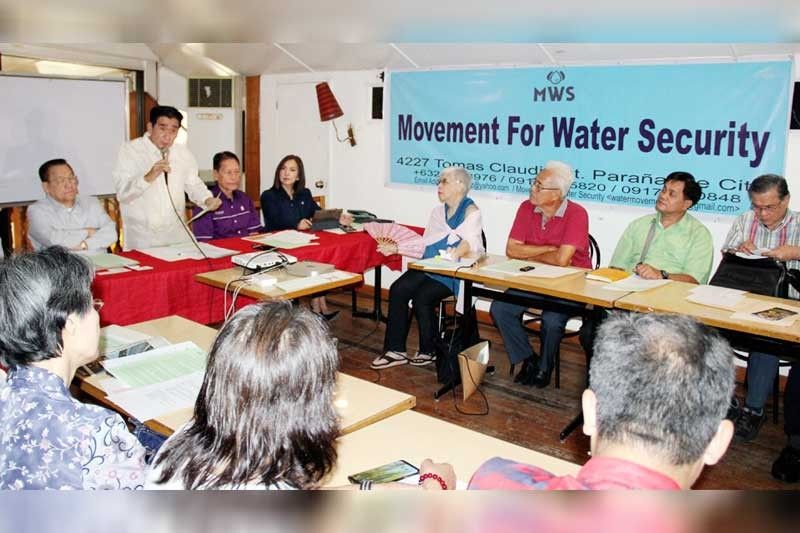Movement for Water Security seeks immediate action vs looming El Niño

MANILA, Philippines — The private sector-led Movement for Water Security urges immediate action from both the government and the private sector to address another imminent El Niño weather phenomenon.
Sonny Sioson, chair of the Central Luzon Rice Farmer Cooperatives, said that their area was already experiencing the effects of El Nino and recommended that the public follow the water conservation tips of the National Water Resource Board.
These include using the water dipper and pail instead of the shower while taking a bath; getting water-efficient toilet bowls that consume three to four liters of water for every flush, instead of the average 14 liters per flush; reusing water from laundry to flush your toilet, clean your car, or water your garden plants; and collecting rain water with pails and basins and store it for future use (eg. watering the plants, cleaning the house etc.)
In addition, Sioson pointed out El Niño’s disastrous effects on agriculture. The rain that could have been harvested is not available for the planting and growing of crops. The Philippines has only four percent rain harvesting, while countries like India have 60 percent in certain areas.
Rain harvesting is in the Green Building Code, but is hardly implemented. He recommended that the government exercise political will in implementing rain harvesting, while the private sector should do the same. This should be done during the current El Niño period, before the rains come and rainwater be wasted once more.
A NEDA-sponsored presidential executive order discussed by the Cabinet earlier should be studied and signed by the President. This is to organize a structure where more than 30 government water- related agencies will finally be properly coordinated for effective water governance. This lack of good governance was cited as the main cause of water crisis by the Asian Development Bank’s 2013 and 2016 water studies.
The Philippines ranks in the bottom third of 48 Asia Pacific countries in all five areas: Environment, economy, household, urban and resilience. The EO squarely addresses this problem of the Philippines’ fragmented water governance. It identified a governing council chaired by the President. It will have an executive management unit, and 12 regional offices for decentralized effective implementation.
Another recommendation is that support must be given to the 18 major water basins identified by the government. This approach would use the integrated water resource management scheme which also addresses critical watersheds, is globally recognized as the best. And yet, the multisectoral River Basin Management Councils, composed of local government units, government agencies, and the private sector, have an average budget of less than P1 million for 2017, 2018 and 2019. They should now get at least five detailed support personnel and a minimum budget for capital equipments and operating expenses.
- Latest
- Trending


























